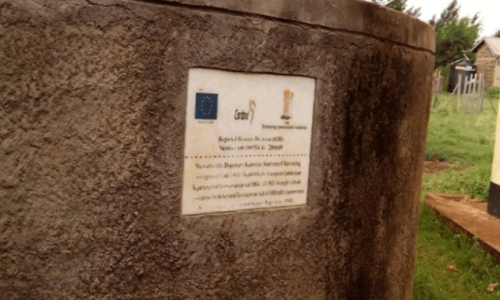Water, Sanitation and
Hygiene (WASH)
The organization in collaboration with its development partners such as DFID/Maji na Ufanisi, ECHO/CORDAID, Caritas Austria, UNICEF WASH Section, Concern World Wide, Constituency Development Funds and Japanese Embassy built wide range of rain-harvesting water structures in vast areas of the county that lacked any form of reliable water sources.
PISP is a pioneer in the rainwater harvesting technologies in Northern Kenya and its core activity and niche is in water and environmental sanitation, largely focusing on the development of a wide range of rainwater harvesting technologies. The water storage structures included underground masonry ground runoff harvesting tanks, underground masonry roof-water harvesting tanks, above ground plastic roof-water harvesting tanks and above ground masonry roof runoff harvesting tanks.
You can be a helping hand
Help our organization by donating today! All donations go directly to making a difference for our cause.
Achievements
- 42 Underground tanks.
- 9 Constructed earth pans.
- 5 Desilted earth pans.
- 55 Above ground tanks for schools.
- 5 Rock catchments.
- 56 Sand dams.
- 3 Water distribution systems (pipelines).
- 205 Improved shallow wells.
- Pit latrines.
Due to devolution of the water sector to county governments and establishment of relatively enough water structures/facilities, PISP now focuses mainly on strengthening water management, accountability of water resource use and maintenance, sanitation and hygiene of water catchment areas and appropriate modes of accessing water from the sources. In this regard PISP partnered with EU - Water facility through a consortium comprising VSF - Germany, Solidarites International and PISP and also another partnership through MISEREOR to support the target communities.
PISP’s innovative programmes among the pastoralist nomads in Northern Kenya received recognition from the international community, specifically the Equator Initiative, for being one of the outstanding grassroots project in the equatorial belt in 2004. The international award was given by the UNDP, IUCN, Nature Conservancy, IDRC, ICDR, United Nations Foundation, and her development partners to grass root initiatives around the world that have achieved tremendous success in reducing poverty through the conservation and sustainable use of biodiversity. .


